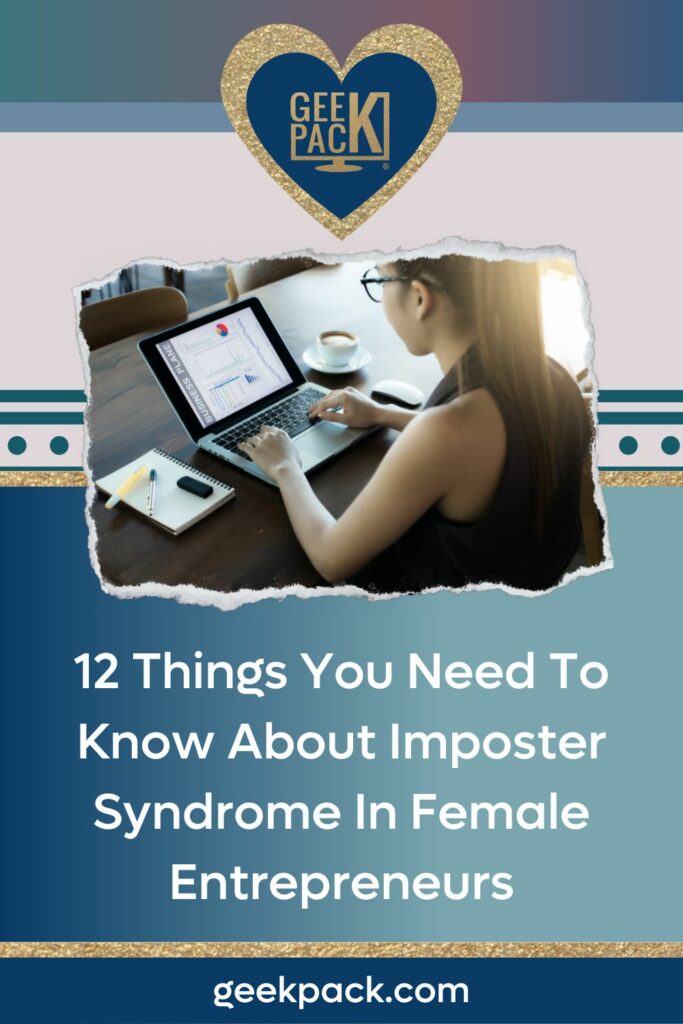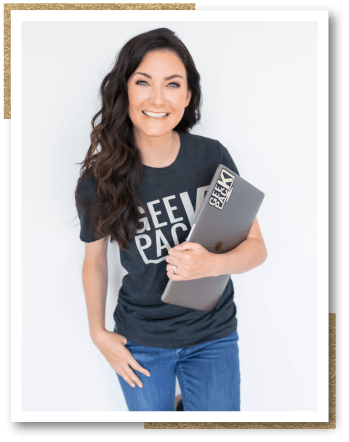
We all love a good Instagram photo. Whether it’s the perfect house, the perfect plate of food, or the perfect engagement photo, our eyes are constantly drawn to those perfect little squares on our smartphones. We save them to our vision boards, save them to our Instagram accounts, and pin them on our Pinterest boards to remind us of what we want of ourselves, our careers, our relationships, and our lives.

In the Digital Age where Instagram filters and curated feeds are abundantly available for our consumption at any given second, there is one big problem with digital perfection: Imposter Syndrome.
Like a powerful undertow in the ocean of society, imposter syndrome pulls us under as we struggle against it with all of our strength. We push ourselves to work harder, look better, lose more weight, gain more diplomas and certifications. We fight to improve our minds, our bodies, our self-discipline, and our credibility.
But no matter how hard we push and pull, the struggle to breathe and stay above deep waters is no match for the undertow of imposter syndrome. What is imposter syndrome, and why does it have such a grip on our sanity? Let’s take a closer look at 12 things you need to know about imposter syndrome in female entrepreneurship.
Feelings of inadequacy and incompetency don’t look the same in every person. Dr. Valerie Young, author of The Secret Thoughts of Successful Women: Why Capable People Suffer From the Imposter Syndrome and How to Thrive in Spite of It, identified five types of imposter syndrome that take on different forms in people.
Carrying excessively high standards for yourself can be paralyzing to your work and your progress. In team dynamics, this type of imposter syndrome presents itself as, “If I want it done right, I have to do it myself.” Micromanaging others is also a sign of perfectionist imposter syndrome.
While acknowledging failures is important for progress, acknowledging successes and small victories is also vital for maintaining balance in your perspective of progress. The pathway to success in every business is filled with ups and downs and trials and errors. Acknowledging and celebrating every step along the way is crucial to keeping perfectionism from overtaking your mindset.
Working at an excessive pace is another form of imposter syndrome that can cripple the female entrepreneur. While starting a small business is a lot of work, consistently making the decision to do every job yourself, work excessive hours, and ignore downtime and self-care is out of balance. Workaholics find their validation in the working, but it is a habit that will lead you into breakdowns due to burnout and exhaustion. Consciously shifting your need for validation through work will help you identify your “superhero” mode when it appears.

Many times, female entrepreneurs will adopt the idea that they simply aren’t good at something because it doesn’t come naturally (and quickly) to them. If you are someone who found it easy to write papers in school but struggled in math class, you might have an internal belief that you aren’t “good” at STEM subjects like math and computer programming.
You can work through these blocks when something new becomes frustrating and you have an overwhelming desire to give up and say, “I’m just not good at this.” Mastering a new skill does not always come quickly or easily. Having to practice at something again and again does not make someone a failure, it makes them consistent.
Acknowledge the small victories you make, and count every step in your progress as a win whether you succeeded or not.
If you find yourself saying, “I can do this on my own, I don’t need anyone’s help,” you might be setting yourself up for failure. While entrepreneurship often begins as a solo mission and vision, being determined to do it all on your own can be a type of imposter syndrome.
Seeking validation through solo ventures can be exhausting and frustrating. Asking for help is not a shameful need, it’s an empowering one. Find a community to plug into, and learn to ask for help a little at a time. You might be surprised at how much progress you can make just by learning to reach out for help.
Degrees and certifications are important components of our education, but allowing yourself to be held back because you feel like you don’t know enough can be a sign of imposter syndrome. This type of imposter syndrome believes there is always something more to learn. You might find yourself studying more than you’re putting knowledge into action.
Even though many people around you might consider you an expert, you might be quick to downgrade their belief in you because you don’t know everything there is to know. While knowledge and training is certainly valuable, it should not be the defining characteristic of who you are and what your capabilities are.
Many successful entrepreneurs still struggle with the idea that their hard work, consistency, and creativity has paid off in the form of success in their business. Their imposter syndrome causes them to believe that their success is simply a fluke, or a stroke of good luck, and there is an expiration date to their success.
There is a constant fear of being “found out” clouding their success, not allowing them to be proud of themselves and their accomplishments. No matter how much progress he or she makes in their business, imposter syndrome never allows them to be content.
It is a cycle of disbelief and insecurity that can trap the entrepreneur into believing eventually, it will all come to an end. Practice celebrating every win, no matter how big or small, and also practice facing the voice of imposter syndrome. If you make a mistake or fall short of a goal, be quick to remind yourself that there is no loss in trying, learning, and trying again.

If you’re struggling with imposter syndrome, volunteering can help you gain confidence in your skills and abilities. Without the added pressure of compensation, volunteering might help you break the cycle of external validation and acknowledge your ability to help other people. Volunteering can also help you realize how far you’ve come when you’re able to help someone who is in the position you were once in.
Learn to recognize and validate every step of your journey by celebrating yourself, your progress, and even your mistakes. While you don’t need to be overly positive about a misstep, you can acknowledge it, accept it, and write down one thing you learned from the experience. Challenge yourself to not dismiss a success as “a fluke” or “good luck.” It’s empowering to recognize why you won something, overcame something, or found a solution to a problem.
Learning how to reframe your thoughts when imposter syndrome arises can mean the difference between overcoming critical thoughts and succumbing to them. Seeing others as people we can learn from rather than threats to our qualifications or abilities is one way of shifting our mindset to overcome imposter syndrome. Understanding that someone else’s successes do not make us a failure is another way to reframe how we see ourselves. Create space between your thoughts and what you embrace as truth, and analyze what comes to mind before you accept it.
While imposter syndrome can be paralyzing and feel very defeating, it doesn’t have to end your career as an entrepreneur or hold you back in any way. Understand that all of us deal with imposter syndrome in one form or another, but what separates the successful from the unsuccessful is our willingness to acknowledge our struggles and face them.
While it might be tempting to give up because you are less than perfect, always remind yourself that if you don’t face imposter syndrome now, you will face it in another situation at some point in your life. Why not face it now, while you’re building the career or company of your dreams? There is no better time to succeed at overcoming it than now.
Imposter syndrome can thrive in the minds of solopreneurs when there is no supportive community to help empower them against overwhelming self-criticizing thoughts. Joining a like-minded community with shared goals and aspirations can help you kick imposter syndrome to the curb! You don’t have to face imposter syndrome alone -- our growing online community of over 11,000 solopreneurs is a safe, supportive place to ask questions and share your struggles with imposter syndrome. Join the FREE Facebook community!





148 Discovery Call Questions you can use to mix & match the perfect profitable call!



Copyright © 2021 - 2025 GeekPack, Inc| All Rights Reserved | Design by Soul Alchemy Branding![]() | Built by GeekPack®
| Built by GeekPack® Privacy Policy | Terms & Conditions | Earnings & Affiliate Disclaimers | Refund Policy | Sitemap
Privacy Policy | Terms & Conditions | Earnings & Affiliate Disclaimers | Refund Policy | Sitemap